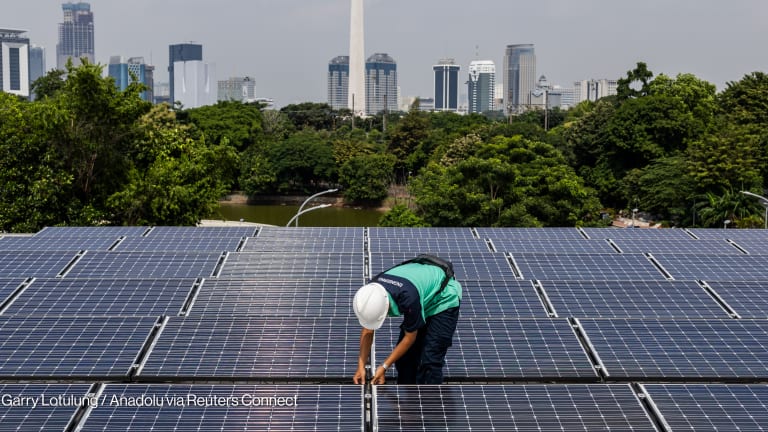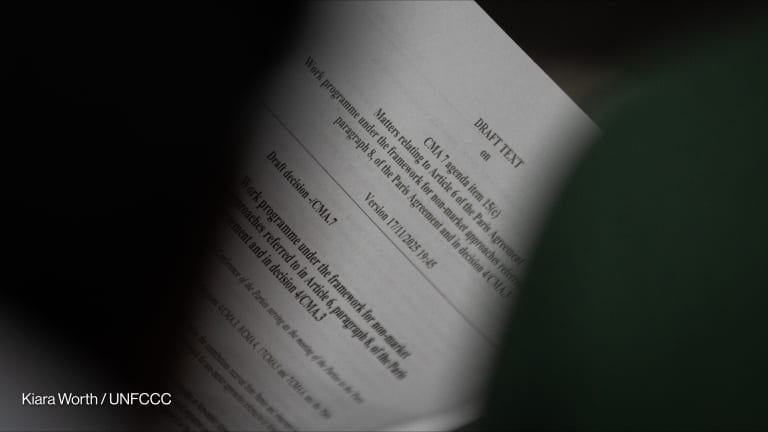
It’s historically been difficult for nations to combine their energy access goals with clean energy goals — but that’s not the case today, according to United Nations Development Programme Administrator Achim Steiner.
All you need to know from UNGA 2021
To get on-the-ground coverage, in-depth analysis, and behind-the-scenes reporting from the 76th U.N. General Assembly, sign up for our special edition newsletters.
“Any national economic planning institution, any advocate for a strategic approach to the future competitiveness of an economy, cannot in any seriousness argue that you should invest in a fossil fuel, carbon-intensive energy infrastructure,” he said Wednesday at a Devex event during the 76th United Nations General Assembly.
The U.N. High-Level Dialogue on Energy on Friday is the first high-level event on energy at the U.N. in more than 40 years, and the timing is “not an accident,” Steiner said.
“Let me be very frank. I think it's damn unfair. I have a great deal of sympathy for countries who would say, ‘look, we need a just transition.’”
— Achim Steiner, administrator, United Nations Development ProgrammeIt represents “a recognition of how central energy is to what happens to development in general,” he said. “And secondly it is also a recognition that the energy sector as a whole, or the energy foundations of our economies, are about to go through the most profound period of change perhaps in the last 100 years.”
One of the key tensions in the climate and energy access discussions is a demand by some wealthy nations that low-income countries, particularly those in Africa, pursue renewable energy and not new fossil fuel-related investments, even as they themselves continue to rely on such sources of energy. A double standard has emerged.
“Let me be very frank. I think it's damn unfair,” Steiner said. “I have a great deal of sympathy for countries who would say, ‘look, we need a just transition’.”
Lower-income countries shouldn’t be penalized for seeking to develop gas power or restricted to renewable energy just because they are looking to boost their power generation, Steiner said. After all, higher-income countries have been developing fossil fuel projects for around 100 years.
Governments see the markets and where trends are heading but want to have a mix of energy types at their disposal, he added.
Natural gas is a transitional fuel “in the industrialized world” and will be “in the developing world” as well, he said. Still, “the direction the future of energy is clearly … a decarbonized energy structure,” he said, and the world is moving quickly toward that.
UNDP, for its part, has a new strategic plan with some ambitious targets, including on energy — where it intends to help about 500 million people gain access to clean energy in the coming three years.
“We believe that addressing the access to energy issue is central to developing countries,” he said, “Making the clean energy revolution work for access to energy is a fundamental building block of a modern competitive economy.”
UNDP, through its policy work, is advising countries as they look at emissions standards, national climate strategies, and energy strategies. It’s also helping them determine how to achieve a development outcome “with the least possible cost in terms of either pollution, environmental destruction, or indeed leaving too many people behind,” Steiner said.
This coverage exploring innovative finance solutions and how they enable a more sustainable future, is presented by the European Investment Bank.









